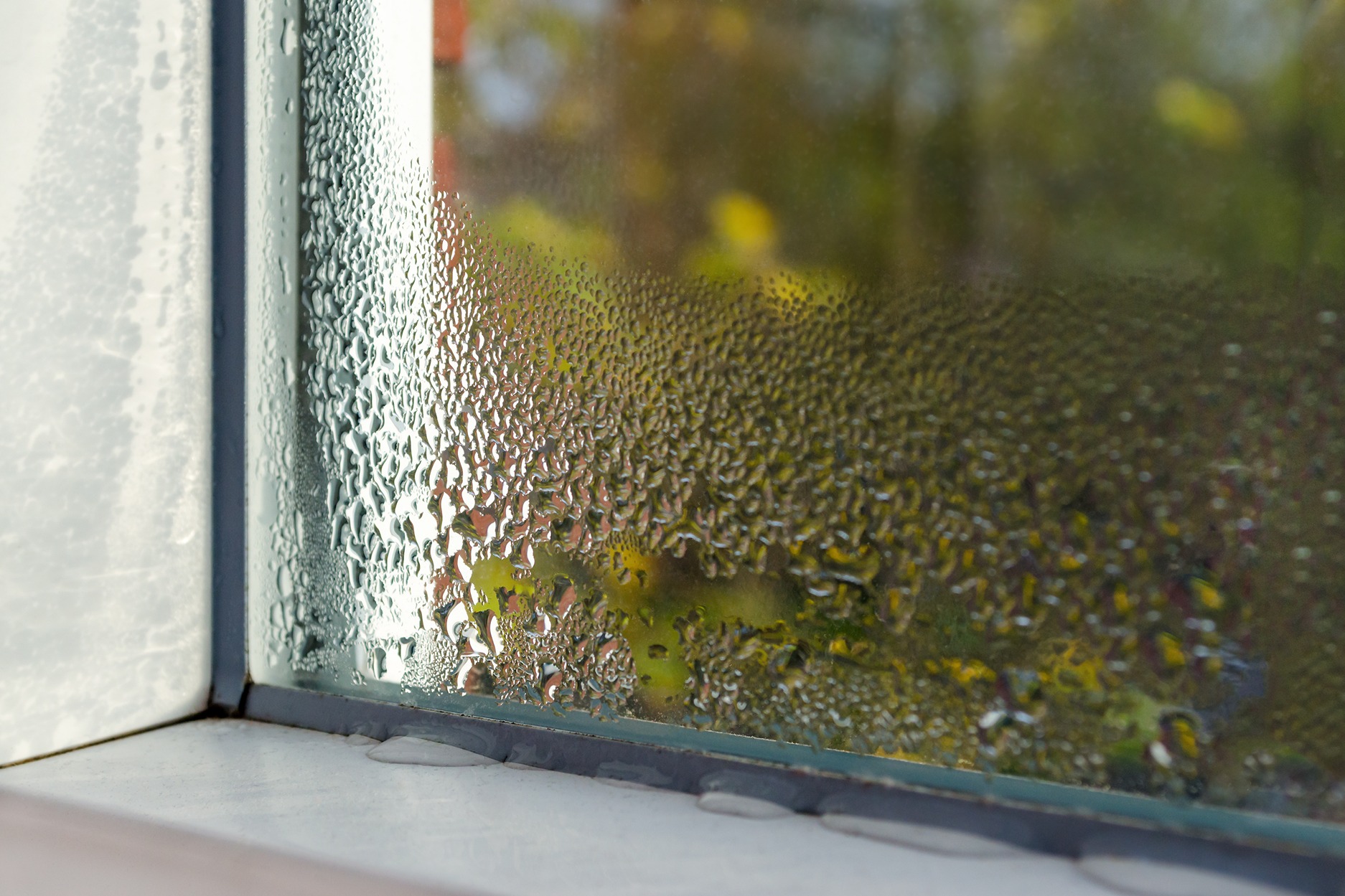Although it may not seem like a significant problem, window condensation can do more than impair your view. Condensation on single-pane windows can cause rot and mold formation on windowsills if not dried regularly. If you have double-pane windows, condensation inside windows may indicate a faulty seal in the casing. This may mean your windows are less efficient. Both are problems that many people want to resolve quickly.
No matter what you’ve noticed in the past or what may come this winter, Elite Impact Glass wants to help you prepare. We’ll discuss how to deal with condensation on windows caused by South Florida’s humidity.
What Causes Condensation Inside Windows?
Think of a glass of ice water on your kitchen counter. You leave it for just a few minutes and find a wet ring when you pick it up. The water in your glass is colder than the room’s temperature, and moisture forms. This type of condensation is why we use coasters to protect our tabletops.
It is the same condensation that forms on your windows. It happens because the temperature indoors may vary from outside, which is why you may notice condensation primarily in the morning after chilly nights. It may also show up when cooking dinner or turning on the heater.
Condensation can increase because of humidity. Southern Florida’s humidity levels may be lower during the winter, but it is still there. You can even cause the humidity levels to rise by going about your everyday routines. With all the different ways condensation can happen, it’s essential to know how to prevent it.
Tips to Prevent Indoor Condensation
Window condensation may be natural, but there are simple things you can do to counter the problem. Some of the most straightforward options include:
Open Your Curtains
Opening your window coverings may be helpful if condensation worsens in the evening. This allows the excess heat to escape.
Circulate the Air
Turning on a ceiling fan can be enough to dry the condensation inside your home before any excess moisture makes rivers and puddles on your windowsills.
Cut Down on Steam
If you notice an increase in condensation when you cook dinner, shower, or run your dryer, the key to ridding yourself of it could be to run your exhaust fans. You may even find running the exhaust fan overnight helpful to keep your home’s windows dryer.
Lessen the Plant Life You Have Indoors
Plants, firewood, and humidity-increasing items can increase the problem. Consider keeping plants and wood piles further away from your windows to lower condensation.
Consider a Dehumidifier
Humidifiers add moisture to the air, which can benefit your sinuses. However, if you are battling condensation, don’t forget to turn off your humidifier. Instead, it may be time to consider a dehumidifier to remove excess moisture from the air after having used your humidifier. Removing the humidity can provide you with a clear view through your windows.
Tips to Prevent Outdoor Condensation
Condensation on windows isn’t just an indoor problem. Exterior condensation can hinder your ability to birdwatch while sipping your morning coffee. Though it isn’t a big problem, you may want to improve your view.
The easiest ways include clearing nearby trees and shrubs or decreasing the heat inside your home. The goal is to allow sunshine to hit windows faster or bring your indoor temperature down closer to the outdoors.
High-Quality Windows in South Florida from Elite Impact Glass
Dealing with condensation from excess humidity on windows can be a real annoyance. If you have done everything to improve your view and lower your risk of mold and still have problems, contact Elite Impact Glass. We offer the highest quality windows to South Florida residents and can help in upgrading yours today!
Image source: nadisja via Shutterstock




